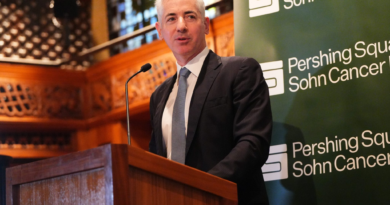The U.S. is short 340,000 accountants—just look at the wave of earnings report mistakes
Mistakes continued to pile up this earnings season in the wake of Lyft Inc.’s market-roiling typo: Planet Fitness Inc., Mister Car Wash Inc. and Rivian Automotive Inc. all had to correct their quarterly earnings statements. These types of errors shake investor confidence and in extreme cases can result in heavy fines from the US Securities and Exchange Commission.
While it’s unclear what exactly led to the mistakes in each of these cases, one major risk factor has reached crisis levels: a shortage of certified public accountants.
Seasoned practitioners are retiring while the profession isn’t drawing the next generation of workers entering the labor market. The lack of help means current accountants’ hours and workloads can be grueling, upping the odds of mistakes and burnout.
“If the people preparing the financials are overworked, or there’s not enough of them, you will have errors,” said Joshua Khavis, assistant professor of accounting and law at the University at Buffalo School of Management, whose research has documented links between auditor turnover, long working hours and mistakes.
Last year more than 720 companies, from Advance Auto Parts Inc. to online legal services provider LegalZoom.com Inc., cited insufficient staff in accounting and other departments as a reason for potential errors. That’s up 30% from 2019, according to an analysis by equity research firm Hudson Labs for Bloomberg News.
Yet despite the plentiful job openings, students aren’t racing to major in accounting. For many, the typical entry-level job doesn’t pay enough to make the needed fifth year of college tuition worth it.
Accountant jobs are now the second-most posted on student placement site Handshake, doubling since 2020 and outnumbered only by general administrative support positions, according to a new report shared exclusively with Bloomberg News. While the share of accounting majors on the platform has ticked up recently after several years of declines, experts say this won’t be enough to solve a worsening shortage.
This could come down to simple cost-benefit analyses: Aspiring accountants essentially need five years of college to earn a Certified Public Accountant license. That requirement, the “150-hour rule,” has become increasingly expensive to satisfy given steadily rising tuition costs.
For many 22- to 27-year-olds, known as Generation Z, their average student debt of more than $20,000 and the lure of higher-paying Wall Street and Silicon Valley firms means the time and effort required to become a CPA doesn’t pencil out.
Last year, the median salary for full-time entry-level accounting jobs was roughly $62,500, up from about $50,000 in 2020, according to Handshake data. The median pay advertised for entry-level management consulting and financial analyst roles, by contrast, was $70,000 and $75,000, respectively. For software engineers, the median entry-level pay was $93,000.
To attract people to accounting, the profession must “own up” to stagnant wages, Paul Munter, chief accountant to the SEC, told an American Institute of CPAs conference in December.
The strain on CPAs
The demand for fresh talent has become so intense that Jacqueline Burke, a professor of accounting at Hofstra University’s Zarb School of Business, says more and more firms are turning to undergraduates to bridge gaps, leading to many students taking on full-time internships on top of their full-time studies. “The number of students doing that — it’s unheard of,” she said.
Burke said employers constantly email her for guidance on how to fill their open roles. Her first piece of advice: raise starting salaries. “I tell them, ‘You’re just not going to compete with what you’re offering,’” she said.
Companies have also experimented with other ways to defray certification costs. Consulting firm PricewaterhouseCoopers LLP, for example, is piloting a program with Saint Peter’s University in New Jersey to allow students to count full-time, paid work at the firm toward their credit hours. Isainay Richardson, a participant in the pilot and a first-generation college graduate, said the opportunity to save money and start her career right away was a definite draw.
Though Richardson is passionate about film and art, she was drawn to accounting as a way to maximize her future career opportunities. Stability and the ability to give back to her family and community were important considerations. “Almost every company or organization needs someone with financial skills, so I know that my accounting background can help me if I ever want to explore a career in the creative industry,” she said.
More students are drawn to the profession’s reputation of stability, especially as half of US college graduates struggle to find suitable jobs. And more tech majors are now applying for accounting roles as layoffs continue to dominate headlines in that field, according to Handshake data.
But some employers are looking for other ways to broaden their appeal to Gen Z. A growing share of job openings emphasize the positive social impact accountants can make, from supporting sustainability efforts to engaging with local communities, according to Handshake. The tactic is effective: listings that do so draw 80% more applications, on average.
Recent graduate and career-changer Melinda Barnes was excited to get an offer from AT&T Inc. to join its newly created Accounting Leadership Development Program. The flexibility to work while continuing to study for her CPA exams was appealing. Barnes also liked the idea of having the chance to network and explore contributions she could make in different kinds of roles. “I want to be able to make some sort of impact,” she said.
Ultimately, though, some experts argue the best way to get more young people into the profession is to drop the 150-hour requirement entirely, especially since research has shown the requirement doesn’t necessarily lead to better accountants.
“You’re talking about the opportunity cost of working full-time for a year and the cost of tuition,” said Ralph Polimeni, an accounting professor at Hofstra. “If I were entering now into the profession, I don’t think I would’ve gone into accounting.”




